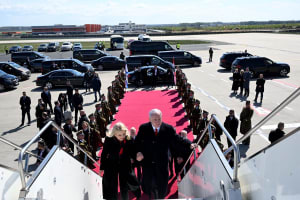Looming threat of a ceasefire order from The Hague and its implications

The estimation in Israel is that the International Court of Justice (ICJ) in The Hague will order a ceasefire for the Israel Defense Forces operation in Rafah and, therefore, Israeli officials are fighting to prevent the move, KAN 11 evening news reported on Saturday.
About half of the judges considered issuing the order even before the operation in Rafah but had no U.S. backing.
Israel highlighted the humanitarian measures it is implementing and the improvements it is making, which are the main concerns of the court.
While the court's order would be legally binding, it would not be enforceable. However, the consequences of such an order would make maintaining international support difficult, there could be challenges in receiving arms supplies and it may not have an ally in the UN Security Council to veto.
South Africa's request to the ICJ on Friday for additional orders against Israel is based on the premise that the steps already taken by the court do not address the changing circumstances in Gaza.
Meanwhile, 11 members of Congress wrote a letter to U.S. President Joe Biden claiming that he is not doing enough against the International Criminal Court's moves against Israel.
"We write to express our concern about recent reports regarding the potential intent of the ICC to issue arrest warrants against the prime minister of Israel, the defense minister, and the [IDF] chief of staff," the members of Congress wrote in the letter.
The United States and other G7 countries are concerned that the ICC will issue arrest warrants for Israeli officials.
They believe the arrest warrant would damage efforts to close a hostage deal.
It was also reported that there is a diplomatic effort underway to send messages to the court condemning the issuance of the warrants, while also clarifying the concern that this could jeopardize a potential deal between Israel and Hamas.
Create your own user feedback survey
Tamar Almog is a legal affairs correspondent and commentator for KAN 11 news.














